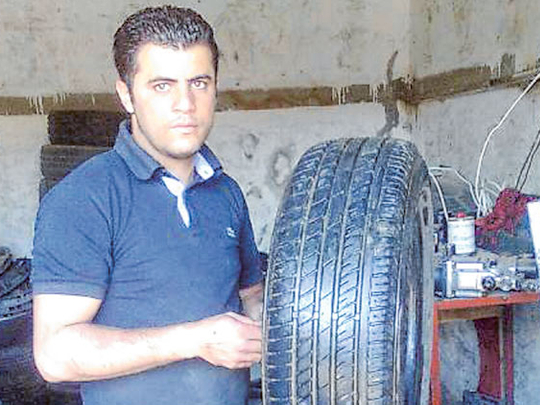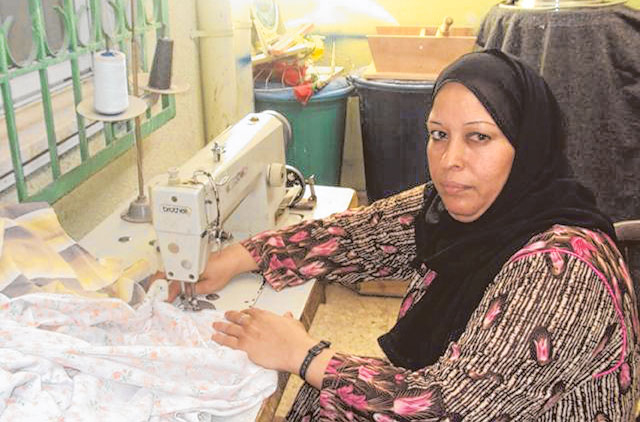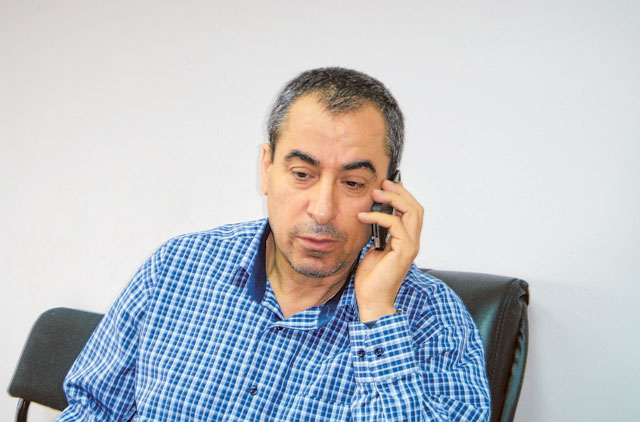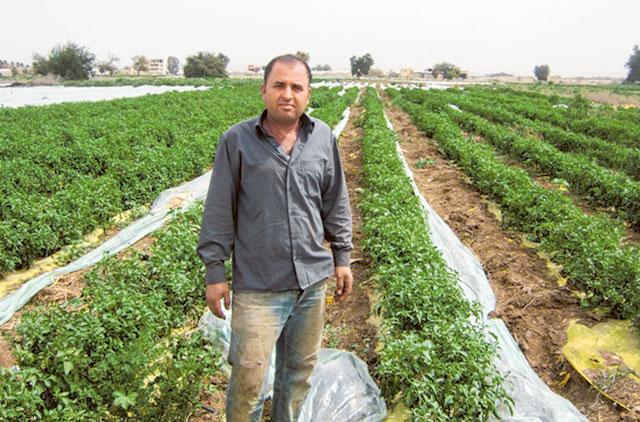
Mention microfinance and immediately Nobel laureate Mohammad Yunus and his successful Grameen Bank in Bangladesh comes to mind.
Little is known of the microfinance sector in Palestine, inspired by Yunus, but when Faten (Palestine for Credit & Development) won the Grameen Jameel Leadership Award for 2012, “for having demonstrated leadership in its local sector, client retention, human resources, new product offerings, poverty focus and operating in a difficult environment”, the focus turned to Anwar Jayosi, the Palestinian equivalent of Yunus.
Jayosi, the general manager, gives the background: “In 2004, we started with a half-million-dollar loan and no infrastructure but we had a vision to play a positive role in providing financial services for low-income and economically active small-scale enterprises, micro-entrepreneurs and especially women, contributing to family empowerment and community development in Palestine”.
When asked specifically why Faten was chosen for such a prestigious award given for best practice in development and leadership in Microfinance in the Arab world, Jayosi, who was educated in Kolkata, India, on a scholarship, becomes animated and reels off these statistics: “Small business constitutes 97 per cent of Palestinian enterprises. Forty percent of Palestinians don’t have bank accounts or the ability to secure loans. There are 13 microfinance entities in Palestine and Faten has 40 per cent of the market. We lead in sustainability funding; our outstanding portfolio is $32 million [Dh117 million], with 17,000 active clients, and we have dispersed around 150,000 loans since we began, totalling $130 million.”
Jayosi takes great pains to explain the good governance and transparency demonstrated by Faten in an environment dependent on donor handouts which is rife with corruption. “We are the first institution to publish our financial statements, administrative reports and salary scales, including my own salary on our website,” he says.
Faten has grown since coming under the leadership of Jayosi in 2004, and today, has 13 offices in the West Bank and four in the Gaza Strip, with a staff of 100. “The division between the two parts of Palestine does not make a difference to us. We are beyond politics, our success is measured by our people’s non-dependence on charity and that’s all that matters,” Jayosi says.
Jayosi emphasises that Faten is not a non-governmental organisation (NGO) — there are many NGOs in Palestine and most have dubious reputations in the handling of finances. Faten is independent of donor or government monies; its aim is to be viable and more so, sustainable, and to remain a non-profit entity serving the needs of the Palestinian people who live under the Israeli occupation.
“We operate on loans obtained from the World Bank and various European Banks, and, to some extent, local banks.” Jayosi says. “We’ve adopted the Islamic banking system so as to provide each borrower with a tailor-made service”.
The challenges Faten faces are what almost all Palestinians face daily — restricted movement, with checkpoints and closures that hamper economic activity; the downturn in the economy which is controlled by the occupier; and to compound matters, the division between Hamas and Fatah which has created a paralysis in the body politic of Palestine and one that widens daily.
“At present I am faced with both Hamas and Fatah governments wanting to levy taxes on Faten, which I firmly believe, as a non-profit organisation, we are not subject to,” Jayosi says.
Instead of paying taxes, Faten redistributes 2 per cent of its net annual profits as scholarships to borrowers’ children to continue their studies at Palestinian colleges and universities. In 2011 Faten provided 40 such scholarships and is committed to do this yearly.
In Gaza, Faten recently installed a $50,000 solar plant to supply electricity to the Gaza Health Clinic.
Overall, Faten’s focus is women: 90 per cent of its clients are women, 50 per cent of the staff comprises women, and 60 per cent of managerial positions are held by women.
Partnerships with international institutions, such as KIVA from California, has added a new dimension to Faten’s modus operandi. “We place photographs and the description of the project on KIVA’s website, which then gets individual donors, debiting their credit cards for as little as $10 for the project.” Jayosi explains. “We do not consider this charity, but instead make the funds revolve so that our sustainability continues.”
Jayosi says that their successes in the field are too many to list and they have produced a half-hour DVD, in which the clients narrate their stories. Watching it, one is astounded with the spread of economic activity and the role Faten has positively played in the lives of women, from a wife whose husband is in an Israeli prison, now selling eggs to earn a living, to women progressing from a home business to fully-fledged hairdressing salons and many more.
Faten was awarded the Palestine International Award for Creativity in 2010, Planet Rating (an international rating institution) gave the organisation an “A” score and ranked Faten in the top 5 per cent of institutions in the world, MIX Market’s transparency certificate for Faten had 5 diamonds, which is the most any institution can get. These were just some of the numerous accolades that came Faten’s way prior to the Grameen Jameel Leadership Award, which, according to Jayosi, is the “icing on the cake”.
Jayosi’s vision for Faten is an eventual transition from a non-profit entity to a profit-making company, attracting local and international investors. All of which is subject to the political and economic situation in the Occupied Territories.
Rafique Gangat, author of Ye Shall Bowl on Grass, is based in Occupied Jerusalem.





